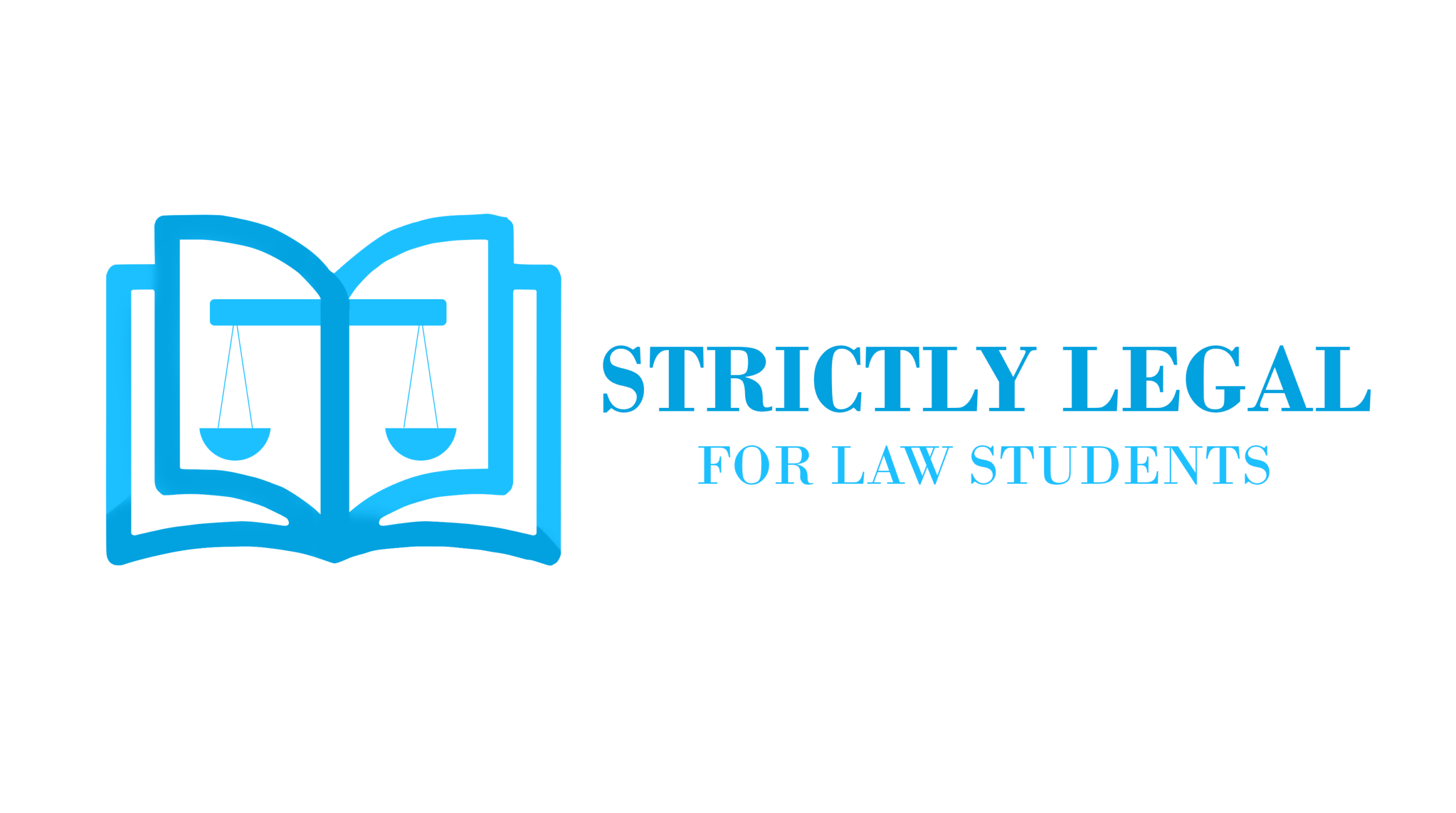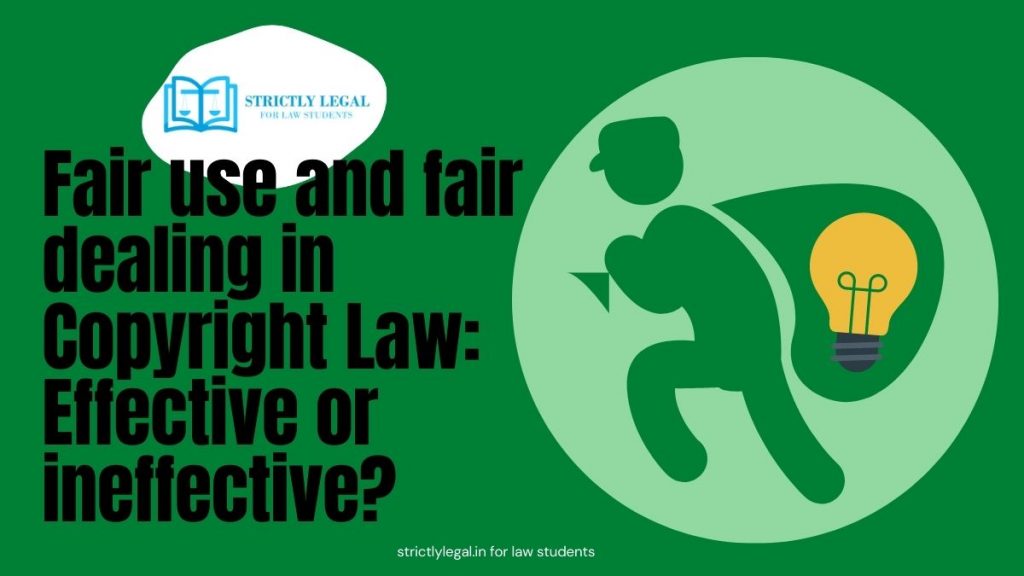The purpose of Copyright is to grant due recognition to the creator for the work which he has done for society. But apart from considering the Creator’s rights, the Indian legislature also took into consideration the needs of the society as well. Fair dealing is a concept indispensable to Copyright Law. Though it is correct to say that the concept has been unexplored so far in India. But this article is an attempt to cover that gap only. This Article starts by first giving a gist about the doctrine of Fair use and fair dealing in India and then it talks about the exceptions which have been provided vis-à-vis Section 52 of the Indian Copyright Act, 1957. This article is an attempt by the author to review the current Status-quo of the doctrine in India and it is also an attempt to review the judgments and issues which the court is facing regarding section 52 of the Indian Copyright Act, 1957.
This blog was submitted by Parul Sardana, Banasthali Vidyapith University, Rajasthan
Table of Contents
Introduction and Meaning:
Fair use and fair dealing in Copyright law imply that it permits to reproduce and to use the Copyrighted work but within a stipulated manner. Thus, under this section, there are some works for which we have been allowed to use the Author copyrighted work and that too without obtaining his consent.[1] Section 52 of the Indian Copyright Act, 1957 mentions Fair dealing. Section 52 titled “Certain acts not to be an infringement of Copyright” speaks of some acts that would not constitute an infringement. The term Fair use encompasses different acts within it, to say some of these acts are the use of Copyright work for private or personal research, use of the copyrighted work for the purpose of Judicial proceedings, etc.[2]
Standing of the doctrine:
The doctrine of Fair use and fair dealing holds great importance as only due to this very doctrine, one can use certain literary works which an author had got Copyrighted. But this doctrine allows us to use that work which otherwise was prohibited. This doctrine holds great importance in the sense that it has been made with the intention to improve education, to make some important things to be accessible in the hands of other people.
A similar instance related to the use of Section 52 in Indian courts was the case of Eastern Book Company v. DB Modak (2008) 1 SCC 1 wherein it was held by the court that “No man is entitled to steal or appropriate for himself the result of another man brain”.[3]
In another case where Defendant had made guides of Mathematics and Plaintiff had made Maths book. The application by Petitioner was rejected by the court in the context that the “Defendant work can be said to be “transformative” amounting to review under Section 52 (1) an of the Act, and thus it would fall within the term “Fair use”. [4]
Gap in the present meaning of “Fair use” in Copyright Act and Suggestions thereto:
Though if we point out, there are many things which should be included within the ambit of “Fair use”. But for the purpose of this present article, emphasis is given on only 1 gap which is the gap of “Educational needs”. Every nation wants its youth to be knowledgeable. Thus, one suggestion that the author wants to give here is that the provision of Section 52 of the Indian Copyright Act should be broadened to include “Use of Copyrighted thing for purpose of Education”.[5]
Conclusion:
Thus, the author is of the opinion that as the Concept of “Fair use and fair dealing” is not yet explored to that much extent, there is some ambiguity, which needs to be resolved by the Court. Thus, the current lacuna which is existing in the present scenario is of the interpretation. India needs to either amend Section 52 or it should specifically evaluate and state what more things can be included in the Fair use by pronouncing various judgments. Indian courts are yet to evaluate and explore the issues which are existent in the present section. Thus, at last, the author is of the view that the current provisions of Section 52 of the Copyright Act are too broad, and vague.
[1] Sana Singh, “Applicability of Section 52 of the Copyrights Act to specific works”, June 10, 2020, S & P,
[2] Section 52, Copyright Act, 1957, Act number 14
[3] Eastern Book Company vs. D.B. Modak (2008) 1 SCC 1
[4] Chancellor masters vs. Narendra Publishing House, 2008 SCC Online Del 1058.
[5] Narayan Prasad and Pravesh Aggarwal, “Facilitating Educational Needs in Digital Era: Adequacy of fair dealing provisions of Indian Copyright Act in Question”, The Journal of World Intellectual Property”,

Users not registered with Strictlylegal can Email us their content and the same are posted through this account. In case of abuse, kindly let us know at [email protected]




